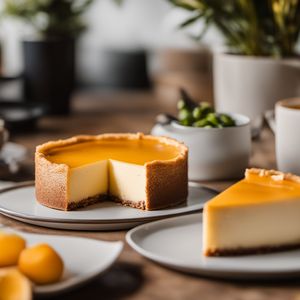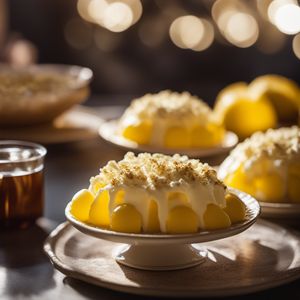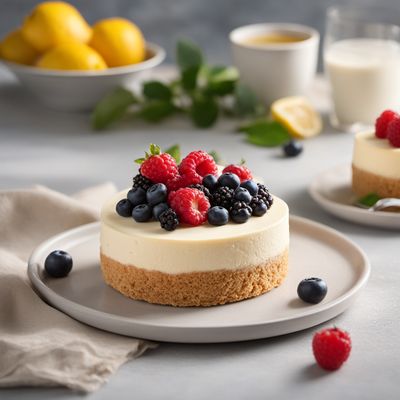
Dish
Sernik
Cheesecake
Sernik is made by mixing quark cheese, eggs, sugar, flour, and lemon zest. The mixture is then baked in the oven until it is golden brown and set. It is usually served cold with fresh fruit or whipped cream. Sernik is a good source of protein and calcium, but it is also high in fat and calories. It is not recommended for people with lactose intolerance or those on a low-fat diet.
Origins and history
Sernik is a traditional Polish dessert that has been enjoyed for centuries. It is believed to have originated in the region of Mazovia, where it was made by farmers using quark cheese. Today, it is a popular dessert throughout Poland and is often served during holidays and special occasions.
Dietary considerations
Not suitable for people with lactose intolerance or those on a low-fat diet.
Variations
There are many variations of Sernik, including those that use different types of cheese or sweeteners. Some recipes also call for the addition of cream or milk to make the dessert even creamier and richer.
Presentation and garnishing
Sernik is traditionally served in a round baking dish or a springform pan. It is often garnished with fresh berries or a dusting of powdered sugar for a more elegant presentation.
Tips & Tricks
To make Sernik even creamier, some recipes call for the addition of cream or milk. It is important to bake the dessert until it is golden brown and set, but not overcooked or dry.
Side-dishes
Sernik is usually served with fresh fruit or whipped cream. It pairs well with coffee or tea.
Drink pairings
Sernik pairs well with coffee or tea.
Delicious Sernik recipes
More dishes from this category... Browse all »

Basque Cheesecake
Spanish cuisine

Cartola
Brazilian cuisine

Chhena poda
Indian cuisine

Country-Style Cheesecake
International cuisine

Fiadone
Corsican cuisine

Flaó de Ibiza
Spanish cuisine

Halawet el-jeben
Arab cuisine

Höşmerim
Turkish cuisine


